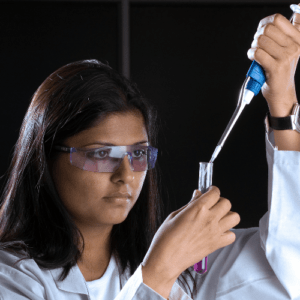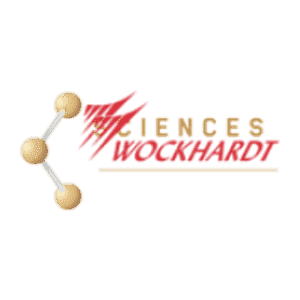Master of Science Microbiology
Master of Science Microbiology


Download Brochure
There are several reasons why one might choose to pursue a Master of Science in Microbiology:
Fascination with Microorganisms: Microbiology is the study of microscopic organisms such as bacteria, viruses, fungi, and parasites. If you are fascinated by the complexity and diversity of these tiny creatures and want to learn more about their biology, a Master of Science in Microbiology might be the perfect fit for you.
Career Opportunities: Microbiology is a rapidly growing field with a wide range of career opportunities. With a Master of Science in Microbiology, you can pursue careers in research, public health, biotechnology, pharmaceuticals, Beauty & wellness, food and beverage industries, environmental monitoring, and more.
Interdisciplinary Field: Microbiology is an interdisciplinary field that draws from various sciences, such as biology, chemistry, physics, and bioinformatics. If you are interested in exploring multiple disciplines and integrating knowledge from various fields, a Master of Science in Microbiology can offer you an exciting and challenging learning experience.
Contribution to Society: Microbiology has a significant impact on society, particularly in areas such as infectious disease control, food safety, and environmental protection.
Research Opportunities: Microbiology is a research-intensive field, and pursuing a Master of Science in Microbiology can provide you with opportunities to conduct original research and make new discoveries.
CAREER PROSPECTS
Pursuing a Master of Science in Microbiology can open up a variety of progressive career opportunities. Here are some potential career paths that you may consider:
Research Scientist: With a Master of Science in Microbiology, you can work as a research scientist in academic or industrial settings.
Medical Microbiologist: Medical microbiologists work in hospitals, clinics, or research labs, conducting diagnostic tests and developing treatment plans for infectious diseases. They may also work on developing new vaccines or antibiotics.
Environmental Microbiologist: Environmental microbiologists study the interactions between microorganisms and the environment. They may work in industries such as agriculture, waste management, or environmental consulting.
Food and Beverage Microbiologist: Food and beverage microbiologists work in the food industry, ensuring that food products are safe and free from harmful microorganisms. They may also work on developing new food preservation techniques or improving the taste and texture of food products.
Pharmaceutical Microbiologist: Pharmaceutical microbiologists work in the pharmaceutical industry, developing new drugs and therapies to treat infectious diseases. They may also work on developing new drug delivery systems or improving the effectiveness of existing drugs.
Biotech Scientist: Biotech scientists work in the biotechnology industry, developing new products and technologies that are based on microorganisms. They may work on developing new vaccines, gene therapies, or biopharmaceuticals.
Public Health Microbiologist: Public health microbiologists work in government agencies, developing policies and programs to control the spread of infectious diseases. They may also work on surveillance programs to detect and monitor outbreaks of infectious diseases.
Overall, a Master of Science in Microbiology can provide you with the knowledge and skills needed to pursue a rewarding career in a variety of fields.








Course Attributes
M.Sc. Microbiology
| Semester 1 | |
| Paper 1 | Bacteriology |
| Paper 2 | Virology, Mycology and Phycology |
| Paper 3 | Immunology |
| Paper 4 | Microbial Biochemistry |
| Semester 2 | |
| Paper 1 | Microbial Genetics |
| Paper 2 | Microbial Physiology |
| Paper 3 | Instrumentation |
| Paper 4 | Bioprocess Technology |
| Semester 3 | |
| Paper 1 | Molecular Biology and Genetic Engineering |
| Paper 2 | Medical Microbiology |
| Paper 3 | Biostatistics and Bioinformatics |
| Paper 4 | Applied Microbiology |
| Semester 4 | |
| Paper 1 | Pharmaceutical Microbiology |
| Paper 2 | Food and Dairy Microbiology |
| Paper 3 | Environmental Microbiology and Phytopathology |
| Paper 4 | Bio-Nanotechnology and Stem Cell Technology |
Our Star Recruiters



















